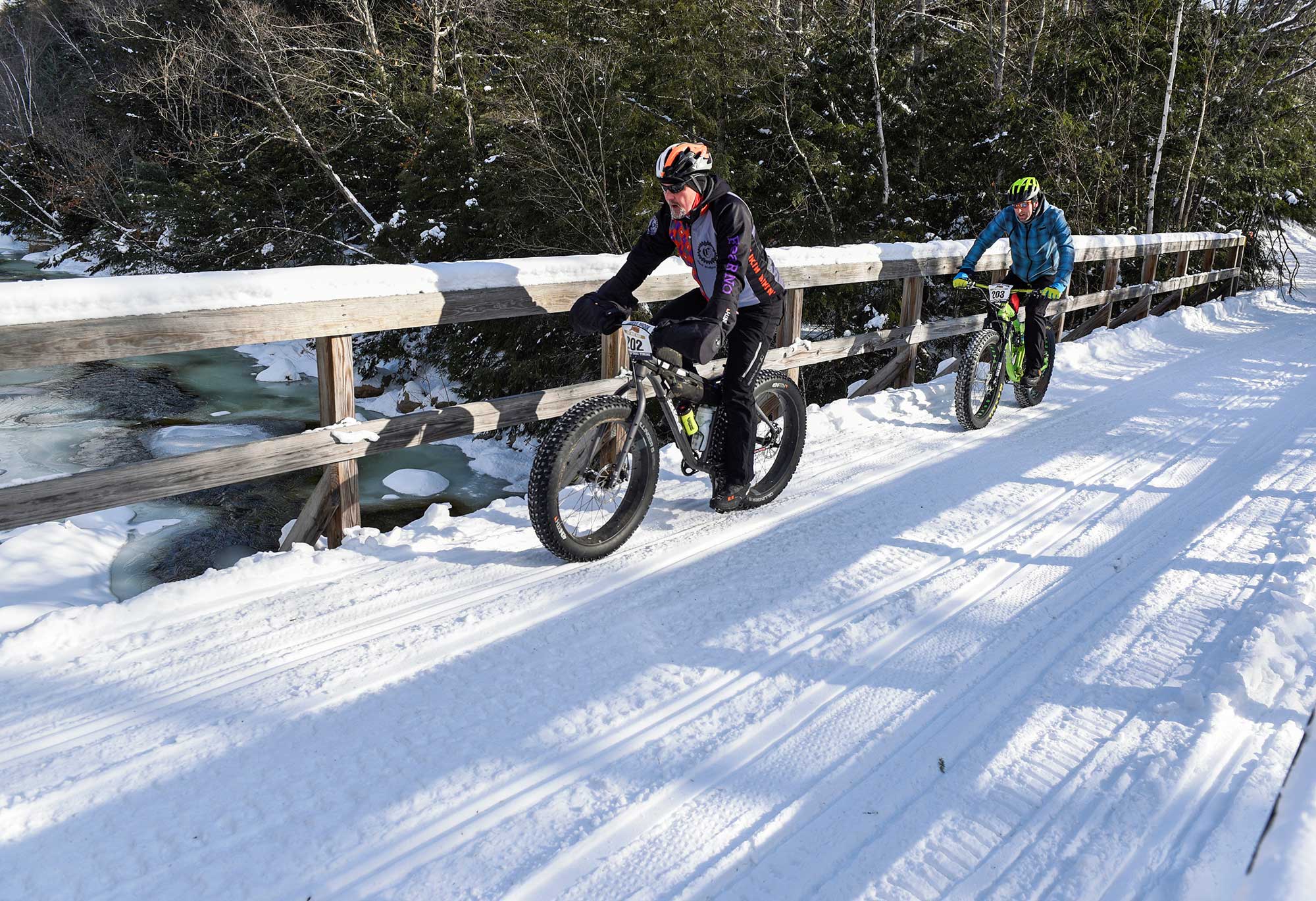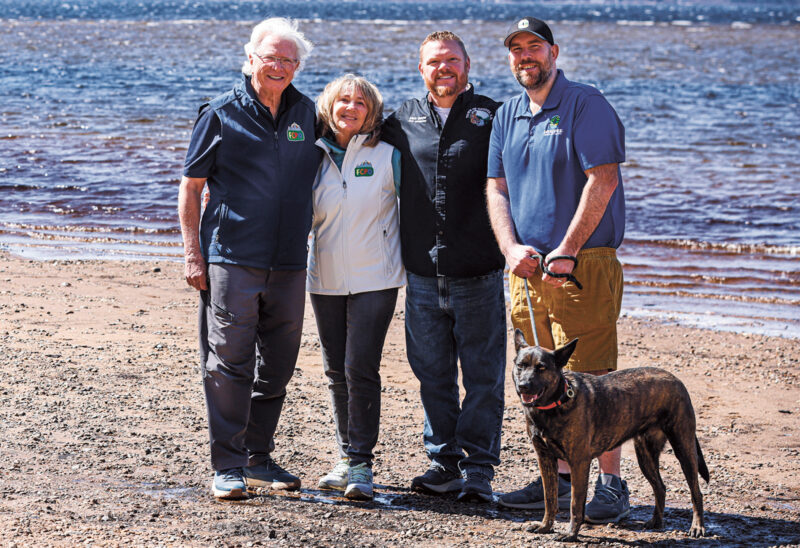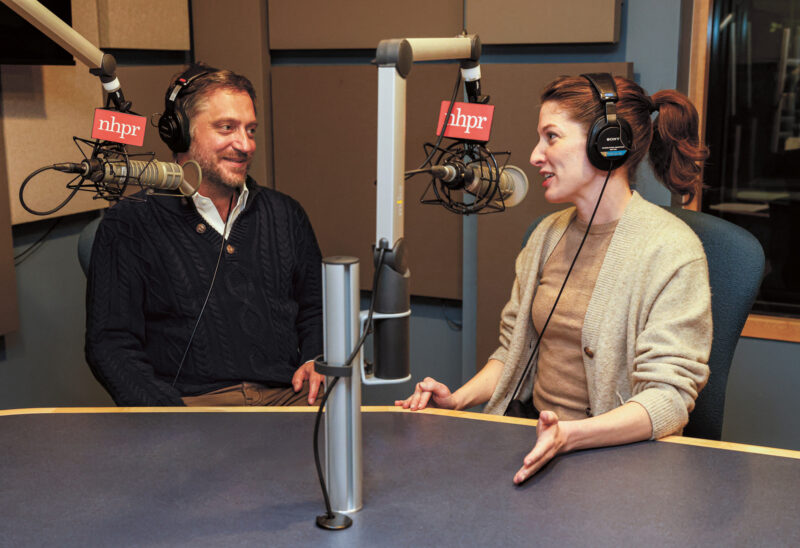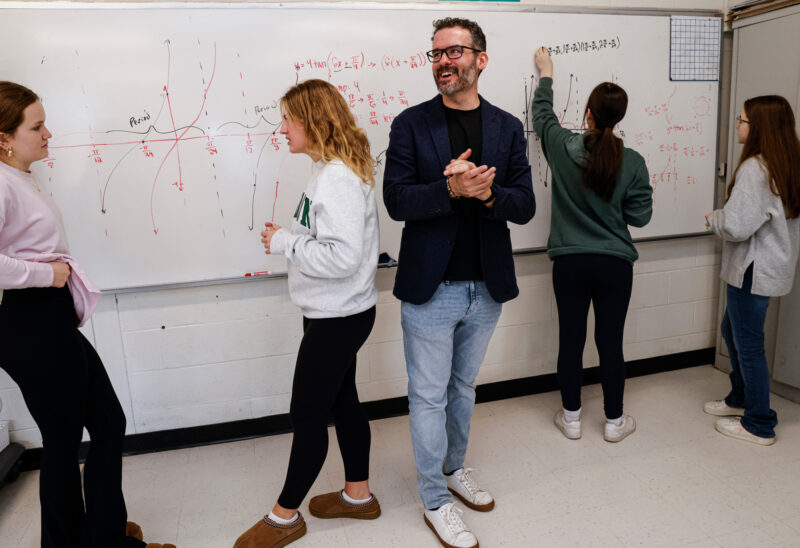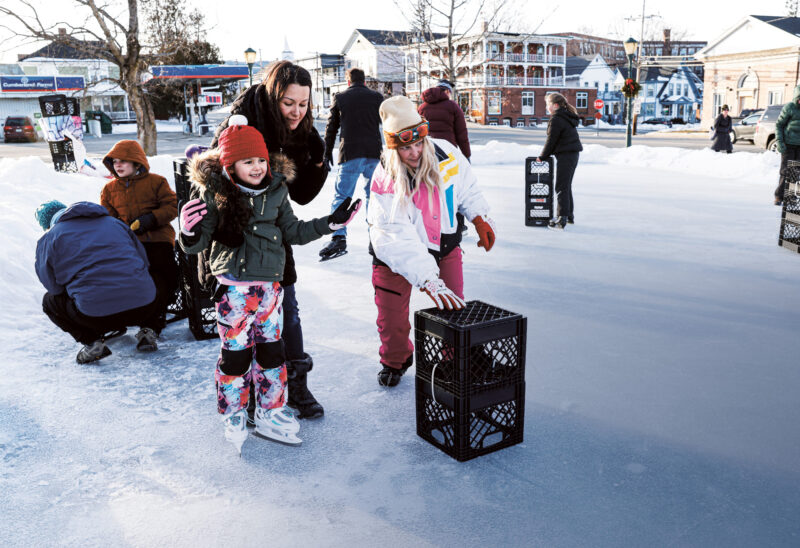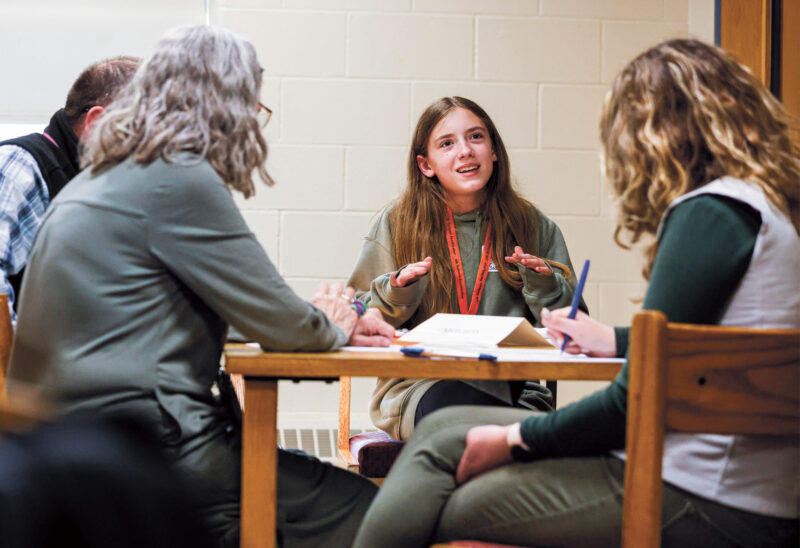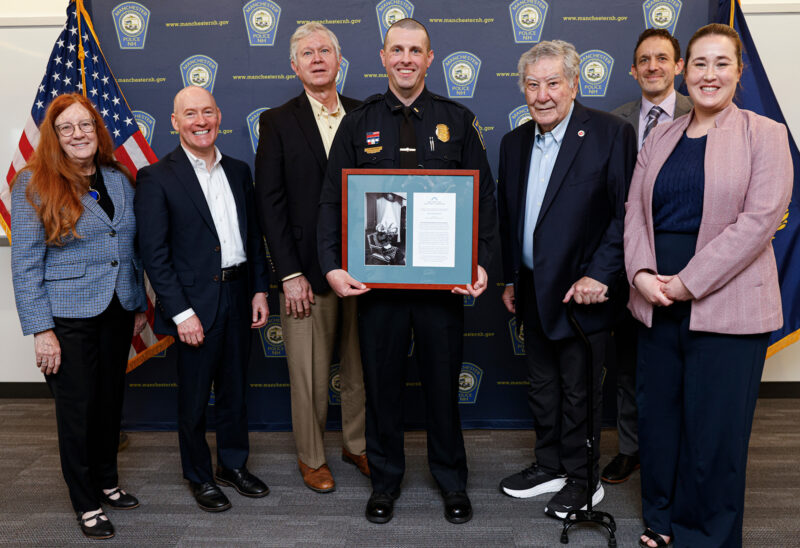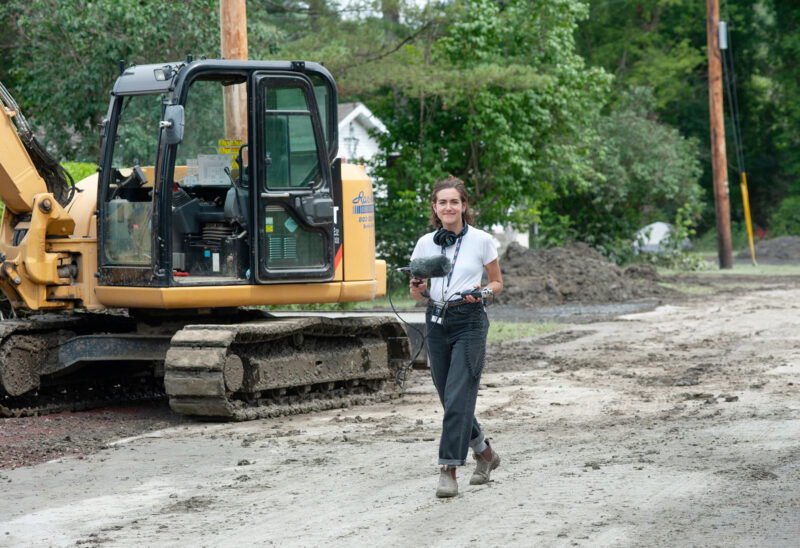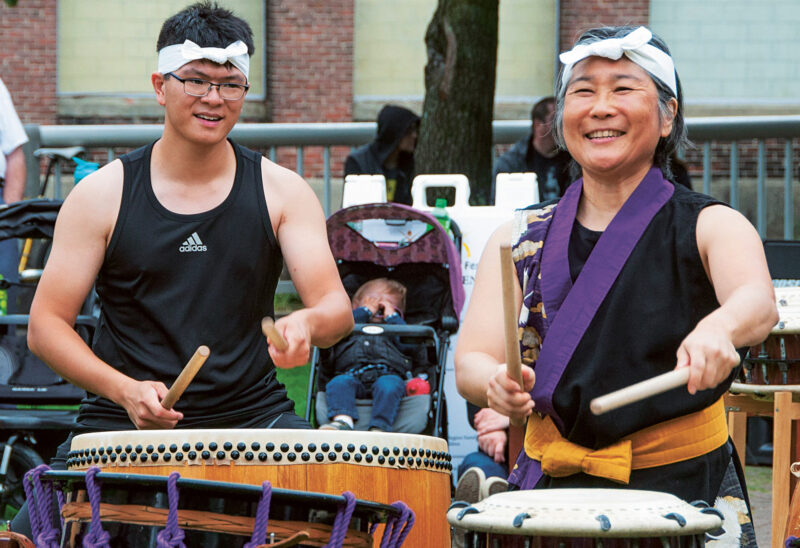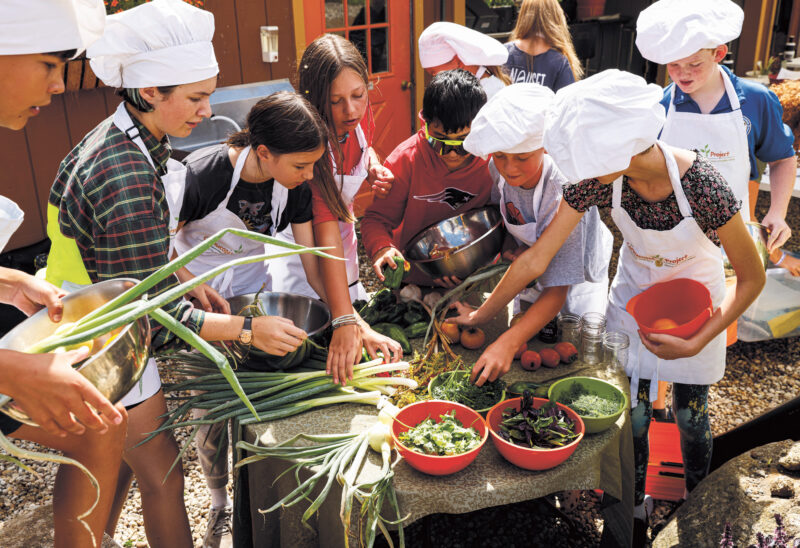Jason Hunter measures success by the number of strangers he runs into on the mountain bike trails he’s helped to create around Gorham, by the number of cars parked in the lots near trailheads, and by the number of people who show up for weekly group rides through the summer.
“There were many weekends this winter where the parking lots at Moose Brook State Park and at Hub North were full, and pretty much all of [the people] were from away. In summer, we’re running into people we don’t know on the trails,” said Hunter, a founding member of the Coös Cycling Club. “Last year we had about 30 kids show up for a kids’ ride. We had to call in more adult guides.”
Hunter didn’t set out to build a network of mountain biking trails that connected Moose Brook State Park to other systems in downtown Gorham and out toward Pinkham Notch. Not really. He was just looking for a place to ride. And when he found it, he wanted to share it.
That network has evolved into the nonprofit Coös Cycling Club, which has created and is maintaining 22 miles of biking trails, is providing outdoor recreation opportunities for local residents, drawing tourists, and contributing to the economic revival of the area. Grants from the Neil and Louise Tillotson Fund of the New Hampshire Charitable Foundation support its work.
The Tillotson Fund is supporting regional economic development in two key sectors of the North Country economy: outdoor recreation and energy efficiency, with a focus on connecting communities’ assets to meet market demands in ways that help people build lasting livelihoods.
When Hunter and his wife, Kara, moved to the Berlin-Gorham area in 2004, they found what he describes as “a community looking to recreate itself” after a decades-long decline in the logging and paper mill economy that had sustained the towns for generations.
The Hunters started exploring Moose Brook State Park, looking for places to mountain bike. While there weren’t any mapped trails, Jason noticed signs that trails had once existed here. It turns out the Depression-era Civilian Conservation Corp — the original CCC — had created trails in the park some 70 years earlier.
“We found one trail, and that kind of gave me hope that there were others out there,” Hunter said. “Then we found the sort of secret treasure map.” That map was the CCC’s blueprint for Moose Brook State Park. It included trails that had been built and since forgotten, as well as other planned developments — roads, buildings, campgrounds — that were never completed.
Hunter, who worked for years on the Appalachian Mountain Club’s professional trails crew, asked the park for permission to re-establish that first trail. So was born the CCC Perimeter Trail, which weaves around the borders of the park’s property. Next, the club built the bike-specific Borderline Trail. Gradually, this modern CCC looked beyond Moose Brook for other riding options.
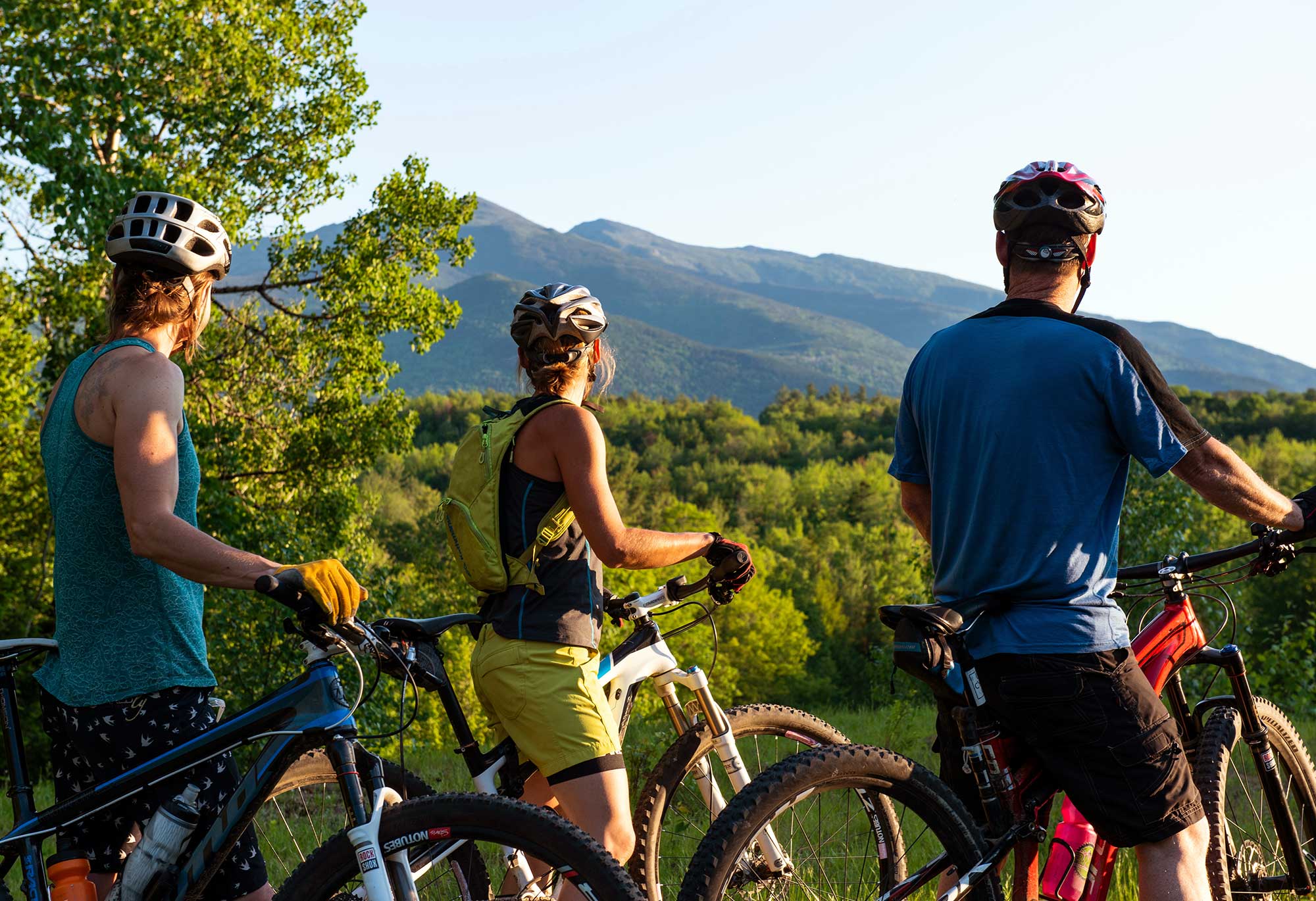
Local mountain-bikers enjoy the view of Mounts Adams and Madison during an after-work ride in Gorham, NH. (Photo by Joe Klementovich.)
“We expanded outside the park mainly because there were willing landowners and we wanted to create a network that sort of surrounded town,” Hunter said. “Plus, we didn’t want to over-build the park.”
The Coös Cycling Club’s early efforts were purely volunteer-led, -built, and -funded. (Hunter said, “When we needed money, we did a fundraiser, or everybody forked out whatever it took.”) In 2015, the group — which had recently incorporated as a nonprofit organization — received the first of a series of Tillotson Fund grants aimed at the creation of non-motorized, multi-use trails around Gorham.
Now, the CCC’s network of trails measures 22 miles, meandering through Moose Brook State Park and connecting via the Presidential Rail Trail to intermediate-level riding on Power Island and by the town’s rec path to a series of trails behind the downtown area. During winter, the CCC grooms about a dozen miles of this trail system for fat biking.
“Ten years ago [the trails] were just a minor feature of what the park had to offer, but now the trail system is considered an integral part of a visitor’s experience here,” said Andrew Zboray, Assistant Regional Supervisor for New Hampshire State Parks, who oversees operations at Moose Brook.
“We have become a destination campground for mountain bikers looking to use the trails not only in Moose Brook, but the network of trails the cycling club has developed throughout Gorham,” Zboray said. “Additionally, we have many more day-users to the park that come to either ride or just walk on the trails.” All of which adds up to more people visiting, eating and shopping in the area.
The club’s enthusiasm and work ethic have garnered support of private landowners and of managers of the White Mountain National Forest, who have invited the CCC to develop more trails.
“All of a sudden, you’ve got a huge canvas to work on. That’s just sort of how everything has flowed,” said Hunter, adding the CCC uses sustainable trail-building practices. “We try to build a trail once and reduce the amount of times we have to go back and fix anything. We’re being sure that we aren’t building more than we can maintain.”
The club recently joined the Borderlands Trail System, a new mountain bike collaborative coordinated by the Northern Forest Center and supported by the Tillotson Fund which is promoting trail networks and communities across northern New Hampshire and Vermont, north to Quebec, and east to Maine.
“We hope that all of these efforts promote sustainable, thoughtful economic development that makes our communities more vibrant and draws tourists who will discover the great outdoor experiences the North Country has to offer,” said Phoebe Backler, program officer with the Tillotson Fund.
Last year, the Hunters purchased an old, 26-acre Girl Scout camp adjacent to the state park and opened Hub North, a lodge and “glamping” business catering to mountain bikers.
Many in the area credit the Coös Cycling Club and its dedicated volunteers with making Gorham a new mountain-biking destination.
“It’s adding to the array of opportunities that people can have if they come north of the notch,” said Howie Wemyss, general manager of the Gorham Land Company and Great Glen Trails. “We’re thrilled this group is making this effort. It’s important for Gorham.”

